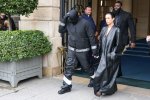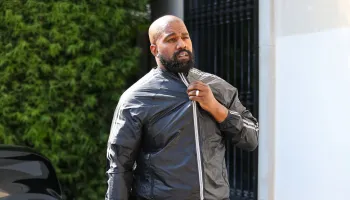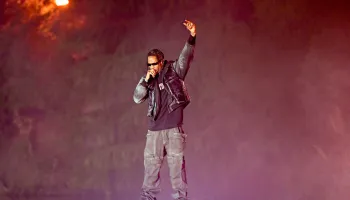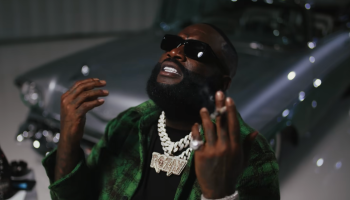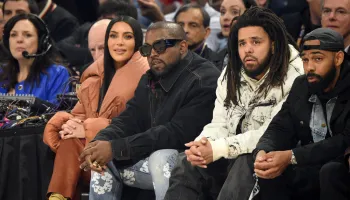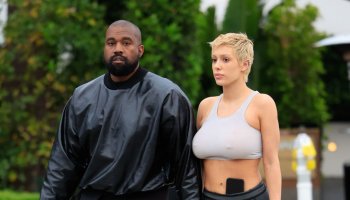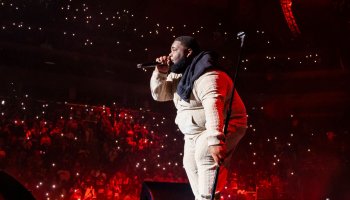Dr. Martin Luther King, Jr.
“As long as the mind is enslaved, the body can never be free. Psychological freedom – a firm sense of self-esteem – is the most powerful weapon against the long night of physical slavery,’’ expressed Reverend Martin Luther King Jr. – ‘Where Do We Go From Here’ – August 16th 1967, The Southern Christian Leadership Conference in Atlanta, GA.
During war, various tactics are usually utilized to accomplish similar results. Sometimes passive resistance will be called upon, while at others confrontational aggression will work better.
Even though many Amerikkkanized-Afrikans did not agree with King’s ‘turn-the-other-cheek’ stance towards their savage oppressors who were terrorizing them – most maintain that he was a very courageous man who stood on the front-lines and died for his people.
Yet, the main-stream media and public fool [school] system continuously keeps the Southern-born [1.15.29] and raised preacher stuck in a certain time-frame by displaying the words – ‘I have a dream’ – next to any pictures of the Civil Rights leader – alluding to the dissertation he delivered at The March On Washington August 16th 1963 in D.C.
Very little mention is made of some of his more revolutionary messages delivered towards the end of his physical existance – April 4th 1968.
“He didn’t just have a dream – a dreamer sleeps and dreams – he made changes, and had a struggle he was prepared to give his life for!” determined Dr. Leonard Jeffries – Chairman of Afrikana Studies @ CUNY.
Although King had been active within his community since he was a youth, he rose to national prominence after the monumental Montgomery Bus Boycott which kicked-off December 5th, 4 days after Rosa Parks’ defiant stance. He’d continue pushing on for change throughout the 1960s as well.
“For years I labored with the idea of reforming the existing institutions of the society, a little change here, a little change there. Now I feel quite differently. I think you’ve got to have a reconstruction of the entire society, a revolution of values.” – M.L. King
While at Morehouse College during the 1940s, King studied Mahatma Ghandi’s suuccessful serene stance against the British colonizers in India, and later utilized it as a blueprit for his own struggles here in the wilderness of North Amerikkka. His message was not ‘turn the other cheek’ in the face of adversity to submit, but rather to maintain discipline and stand up and rise above it.
Although some labeled King as being compromising, others argue that he was one of the most violent Black men Amerikkka has ever produced – as the 1964 Noble Peace Prize winner was considered to be an agitator and nonconformist, because of the countless public riots, bombings and killings; caused by his presence.
“There is something strangely inconsistent about a nation and a press that would praise you when you say, ‘Be nonviolent toward Jim Crow,’ but will curse and damn you when you say, ‘Be nonviolent toward little brown Vietnamese children.’ There is something wrong with that press.” – King assessed.
Also, by utilizing the media as a weapon, King displayed some of the atrocities Amerikkkanized-Afrikans were enduring from their oppressers – for the whole world to witness.
While Elijah Muhammad and Malcolm X told the world that the Caucasian man is the devil, Dr. King proved that the Caucasoid is in fact the devil… becuase who else but a devil could beat, hose down and sic dogs on; peaceful demonstrators who time-after-time maintained their discipline under fire.
“When they present Dr. King’s contribution to us as a people, most people in America, being unconscious of history and its processes, they actually think one of King’s greatest contribution to us as a people was non-violence. King’s greatest contribution to us as a people was… he taught us how to face the enemy without fear,” once declared the legendary Kwame Ture (Stokley Carmichael).
Standing on the frontlines inspired millions of oppressed working-class citizens who were still seeking another manner to combat the system. “He was a great man who stood up at that time for our people. He was doing the best he could at that time for what he believed in and fought for. It would be a different thing today compared to then,” relayed Pop Gaskins – Committee To Honor Black Heroes – who attended many of the Reverend’s rallying calls to march.
“Nobody else can do this for us. No document can do this for us. No Lincolnian Émancipation Proclamation or Johnsonian Civil Rights Bill can totally bring this kind of freedom,” King determined.
“[The Black man] will only be free when he reaches down to the inner depths of his own being and signs with the pen and ink of assertive manhood his own Emancipation Proclamation.
And, with a spirit straining toward true self-esteem, [Blacks] must boldly throw off the manacles of self-abnegation, and say to himself and to the world, ‘I am somebody. I am a person. I am a man with dignity and honor. I have a rich and noble history.’”
Martin’s motivational messages moved a nation. Towards the end of his physical existence King seemed to reconsider his stance on a few subjects. Here are some King quotes:
“There is something strangely inconsistent about a nation and a press that would praise you when you say, ‘Be nonviolent toward Jim Crow,’ but will curse and damn you when you say, ‘Be nonviolent toward little brown Vietnamese children.’ There is something wrong with that press.”
“True compassion is more than flinging a coin to a beggar. It comes to see that an edifice which produces beggars needs restructuring.”
“I am convinced that if we are to get on the right side of the world revolution, we as a nation must undergo a radical revolution of values.”
“We must honestly admit that capitalism has often left a gulf between superfluous wealth and abject poverty, has created conditions permitting necessities to be taken from the many to give luxuries to the few, and has encouraged small-hearted men to become cold and conscienceless so that, like Dives before Lazarus, they are unmoved by suffering, poverty-stricken humanity.”
“We must see now that the evils of racism, economic exploitation and militarism are all tied together … you can’t really get rid of one without getting rid of the others… the whole structure of American life must be changed. America is a hypocritical nation and (we) must put (our) own house in order.”
“There must be a better distribution of wealth and maybe America must move toward a democratic socialism.” “
“The shirtless and barefoot people of the land are rising up as never before. The people who sat in darkness have seen a great light. We in the West must support these revolutions.”





